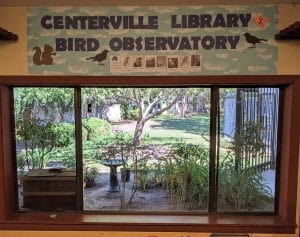Summer Adventure is the time to celebrate the variety of ways we engage with nature! This week, Kate shares her own ways of wondering in nature, and offers other ways we can ensure the outdoors are accessible for everyone.
This year, I'm thrilled to write a personal perspective on our Summer Adventure theme, "Wonder in Nature." There are so many studies showing the positive influence being outdoors has on our soul–everything from the power of natural sunlight to reducing anxiety. But what do you do when you're not built for nature–or when nature isn't built for you?
Over time, my chronic illnesses have expanded to include sunlight-induced migraines, eye issues, and eczema. As a result, going outside looks really different for me than it does to many people. When I walk outside and see a bed of flowers, a beautiful tree, or an animal, my first instinct is to run and hide. So, how does someone like me find joy in nature? For a person with allergies and asthma, it looks like taking a very comprehensive inventory of your triggers. I, for one, have found that my allergies are far less severe in coastal environments, so I tend to opt for bluffs and beach walks when I want to get outside. When I need to avoid sunlight or plants underfoot, I walk in the early morning and stick to paved pathways. Even with all of this preparation, however, I still find myself having a complicated relationship with nature.
I was diagnosed with severe allergies and asthma when I was just two years old, after a life-threatening bout of pneumonia. My mother told me that the doctor actually said that it would be easier to tell us what I wasn't allergic to. In my case, pork, corn, and hamsters. I had no interest in any of these things, so I spent most of my childhood indoors watching movies and munching on Mocha Mix ice cream. As a result, my relationship with the outdoors became nonexistent. I couldn't play on the lawn because of my grass allergy, or in the nearby creek area because of my sensitivity to tree pollen. I never picked flowers, or walked a dog, or pet our family cat. To me, when I walked into a natural environment, all I felt was anxiety. Today, I've outgrown some of those allergies, but most of them have stuck around. Even after allergy shots, I struggle with natural places year round. The problem with allergies isn't just a runny nose. For many, an allergy trigger quickly leads to asthma. Asthma attacks are a different beast, because you need to get away from that trigger as quickly as possible and use a rescue inhaler.

For those kids who may have issues like I do, I suggest finding safe ways to interact with nature. I love sitting in a window seat, sipping coffee and watching the wind in the trees. I also enjoy peering at the animals from an allergy-free distance, like kids do in Centerville's Nature Observatory window. As someone who can't experience a lot of this firsthand, I'm fascinated by nature documentaries, especially ones that focus on animals. As a child, I think I had the world's largest collection of stuffed animals. While you need to wash them frequently for dust mites, stuffies can be a great comfort to the chronically ill child. Then, of course, there are books! I would say a huge part of how I experienced nature was through the gorgeous illustrations in picture books. As a child, my connection to the outdoors was through my local library.
Of course, my perspective is only one. I think about this especially in July (Disability Pride month, the anniversary of the Americans with Disabilities Act) because we still have a long way to go to make nature accessible for all. As allies, I hope we all do our part to ensure an equitable outdoor space. Take a look at the signage and accessibility of your local trails. Is there a friendly trail for wheelchairs or other motility aids? One thing we can all do is send a note to our local parks organization to ask about what trails are accessible, and encourage the department to add more (or have clearer signage). Another tip I've heard is from people who collect walking sticks to leave at the trailhead for those with balance issues. Because of the work of disabled advocates and allies, the National Parks Service have created an Accessibility Task Force to bring us to the next level in outdoor equity.
This summer, I have to admit: I don't plan on much outdoor time. I may end up enjoying the forests of Hawkins, Endor, Hundred Acre Wood, or Fangorn more than ones in real life. But I do want to express the joy I feel for nature in the best way I know how: by putting a book in a member's hands.

Ready for an Adventure?
There are plenty of ways to adventure with the library this summer. Check out our theme-related booklists and Summer Adventure events, then venture to the Submission Showcase to see how others are celebrating the summer!


Add a comment to: Interacting with Nature: a Disabled Perspective